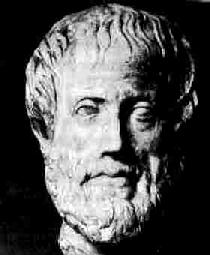A theory on the history of schools

In my last post I discussed why I believe that the school system is doing nothing to elevate the poor. Essentially I argued that the school system teaches people a great deal of non-essential skills at the expense of true life-skills.
No matter how brilliant Emily Bronte is, the fact is that I will rarely (if ever) benefit from my knowledge of Wuthering Heights. In fact, it nearly damaged me since I, an extremely avid reader, hated that book with a passion and have since regarded all "classics" with a wary eye. In the same note, while it's nice to know how molecules combine, my knowledge of chemistry probably isn't going to have much application in my life. Meanwhile crucial life-skills, such as budgeting, stocks, mortgages and the cost of interest, were either ignored or just lightly mentioned.
Now I'm not against teaching chemistry to our children, for some it ignites an interest that will lead them to a great career. But teaching such things at the expense of critical skills seems counter productive to me.
So how did our educational system come to be this way? I have a general theory, though I warn you that it's largely uncorroborated. Perhaps some people can correct or confirm certain elements of this story. Let's go back first to a time before schools. During that age long past humanity consisted of mostly farmers and hunters. Children were raised and passed on skills from their elders. If you were a farmer, you learned to farm from your father or some other mentor figure. There were no schools, no tuition, no professional teachers. There are also no rich and no poor. Some may have more than others, but there is no effective way to translate a rich harvest into captial. You will simply eat well that season.
Let's go back first to a time before schools. During that age long past humanity consisted of mostly farmers and hunters. Children were raised and passed on skills from their elders. If you were a farmer, you learned to farm from your father or some other mentor figure. There were no schools, no tuition, no professional teachers. There are also no rich and no poor. Some may have more than others, but there is no effective way to translate a rich harvest into captial. You will simply eat well that season.
Fast forward a few hundred years and you will begin to see people coalescing into communities, and beginning to specialize. As this happens education continues, mostly the same. If your father is a blacksmith, you will most likely become a blacksmith. The only way to escape such a fate is to apprentice yourself to a man of another profession. However, as civilization develops, so does the concept of wealth. Some men are more successful than others and begin to build their riches.
Step forward again. Civilization is bustling. Classism exists. Those who succeed become very wealthy, those who do not become poor. Science and literacy exist, but are known by few. This is the time from which education pulls it's roots. A wealthy merchant hires a wise man to teach his son reading, writing and philosophy. He doesn't need the man to teach his son about business, he can do that on his own. He knows the fundamentals of business and wealth, and he will pass them on to his child. The teacher is hired to teach that which the wealthy merchant can not. Things like Geometry, Literature, and Physics are the subjects at hand.
Let's stop for a second and see what we've just witnessed. The formation of professional education. A teacher was hired (perhaps for the first time ever, making him the first professional teacher), but not to instill basic life lessons. Those lessons would be passed down from father to son, in the same manner as generations before had. Instead the teacher was brought in to teach "higher" lessons. The father had no need of those lessons to achieve his wealth, yet he wanted them taught to the son. Step forward in time yet again and we will see the first schools established (in the times of the Greeks and Persians). These schools don't teach their students to be good businessmen, or how to build wealth. Their trades will be taught to them either by their fathers, or through an apprenticeship. Instead these students are taught more classic lessons. History, advanced mathematics, literacy, philosophy. These lessons are useful to their students, but they are still expected to learn their trade skills and the life lessons outside of the educational system.
Step forward in time yet again and we will see the first schools established (in the times of the Greeks and Persians). These schools don't teach their students to be good businessmen, or how to build wealth. Their trades will be taught to them either by their fathers, or through an apprenticeship. Instead these students are taught more classic lessons. History, advanced mathematics, literacy, philosophy. These lessons are useful to their students, but they are still expected to learn their trade skills and the life lessons outside of the educational system.
Fast forward to today. College have replace apprenticeships as the prefered method to acquire tradeskills. High schools (and below) continue to teach many of the same subjects as the early schools. But only a small percentage of student will ever benefit from any individual lesson taught. Few who study chemistry will end up in a profession that utilizes that knowledge. Few who study Shakespeare find need of that knowledge later in life. But students are still expected to learn their life lessons elsewhere, under a different instructor.
These life lessons, not your geometry lessons, are what lead you to wealth and financial comfort. Schools may open your mind, and these days college may lead you to a larger income. But the lessons that differentiate the rich from the poor are simply not taught in our educational system.
I am a huge fan of education, and my degree has provided me with a fulfilling and comfortable career. While the education system may not lead you to wealth, I argue that wealth is a hundred times more difficult to achieve without education, especially in today's world. But understand that a good "education" can only take you so far. If you want to build wealth and financial stability, you need to learn the life-lessons that parents are expected to hand down.
- Save
- Live below your means
- Control your risks
- Make wise investments
As far as wealth is concerned, you are ultimately responsible for your own education.
2 comments:
Nice post. I agree that the internet has given us (people who live today) a huge advantage. We have a vast library of resources at our fingertips.
I think Jim Rohn put it best...
"Formal education will make you a living [i.e. a salaried job]; self-education will make you a fortune."
qevzc htbgp monclerモンクレールレディース モンクレール moncler 古着 tgtyj fkdygq Blogger: Lording the Land - Post a Comment nkwmfnn bottes ugg canada ugg bottes ugg ou emu jdhciza iomzl bottes ugg taillent grand bottes femme bottes ugg mode xvxfxitc bottes ugg bas prix ugg france bottes ugg en suisse mbrjudaq
Post a Comment